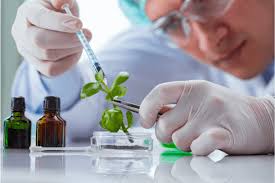Irrigation water management is a critical factor in improving agricultural output in Egypt, a country where agriculture serves as a significant economic driver. With limited water resources and increasing demand for food production, effective management of irrigation water is essential for optimizing crop yields and ensuring sustainable agricultural development. In this paper, we will explore the current state of irrigation water management in Egypt and discuss potential strategies for improving agricultural output through efficient water use. By examining the challenges and opportunities in irrigation water management, we aim to provide insights that can contribute to the advancement of Egypt's agricultural sector.
Improving Agricultural Output Through Effective Irrigation Water Management in Egypt involves the implementation of modern irrigation techniques, such as drip and sprinkler irrigation, to ensure efficient water use. Additionally, the maintenance and rehabilitation of existing irrigation infrastructure are crucial for maximizing agricultural productivity. Furthermore, the adoption of precision agriculture technologies and the promotion of water-saving crops can also contribute to improving water management in Egyptian agriculture. These measures are essential for addressing the challenges posed by water scarcity and climate change while enhancing the sustainability of the agricultural sector in Egypt.
The Importance of Efficient Irrigation Water Management in Egypt

Efficient irrigation water management is crucial for Egypt due to its heavy reliance on the Nile River for agriculture. The country faces water scarcity and is highly vulnerable to the impacts of climate change. Inefficient irrigation practices contribute to water waste and environmental degradation. Implementing advanced irrigation techniques and technologies can help maximize water productivity, conserve resources, and improve agricultural sustainability in Egypt. By adopting efficient irrigation water management methods, the country can ensure food security and manage its water resources more effectively.
Challenges and Strategies for Irrigation Water Management in Egypt
environmental consulting firms

Challenges for irrigation water management in Egypt include limited water resources, inefficient irrigation techniques, and increasing demand for water due to population growth and urbanization. The country also faces issues such as climate change, water pollution, and the need to modernize irrigation infrastructure. To address these challenges, Egypt has implemented various strategies for irrigation water management, including the expansion of wastewater reuse for agriculture, the promotion of water-saving irrigation techniques, and the modernization of irrigation systems through the use of new technologies. The government has also adopted policies to improve water governance and promote water conservation practices among farmers. Additionally, international cooperation and partnerships with organizations such as the World Bank and the United Nations have helped Egypt in developing and implementing sustainable irrigation water management programs. Overall, while Egypt continues to face significant challenges in managing its irrigation water resources, the country is taking steps to address these issues through a combination of local initiatives and international collaboration.
Revolutionizing Agriculture through Modern Irrigation Water Management in Egypt

Revolutionizing Agriculture through Modern Irrigation Water Management in Egypt involves the implementation of advanced technologies and efficient practices to optimize water use in agricultural production. This includes the use of drip irrigation, precision agriculture, soil moisture monitoring, and remote sensing to enable farmers to apply the right amount of water at the right time. Additionally, the integration of modern irrigation systems with smart water management techniques can help minimize water waste, improve crop yield, and sustainably utilize water resources in Egypt's agricultural sector. Overall, adopting modern irrigation water management practices can contribute to increased food security, reduced environmental impact, and improved livelihoods for farmers in Egypt.
The Impact of Climate Change on Irrigation Water Management in Egypt

The impact of climate change on irrigation water management in Egypt is significant. As temperatures rise and precipitation patterns change, water availability for agriculture is becoming increasingly uncertain. This has led to challenges in maintaining reliable water supplies for crop irrigation, which is essential for food security and livelihoods in the country. In addition, rising sea levels and saltwater intrusion are threatening the quality of irrigation water in coastal regions, further impacting agricultural productivity. Extreme weather events such as droughts and flooding also pose risks to the irrigation infrastructure and agricultural lands. Egypt has been implementing various measures to adapt to these challenges, including modernizing irrigation systems, promoting water-efficient farming practices, and improving water resource management. However, more comprehensive and sustainable strategies are needed to address the complex and evolving impact of climate change on irrigation water management in the country. It is crucial for Egypt to continue investing in adaptive strategies and policies to ensure the resilience of its agricultural sector in the face of a changing climate.
Sustainable Solutions for Irrigation Water Management in Egypt
Sustainable solutions for irrigation water management in Egypt include the implementation of modern irrigation techniques such as drip or sprinkler irrigation, which can reduce water loss and improve water efficiency. Additionally, using recycled or treated wastewater for irrigation can help conserve freshwater resources. Another approach is the restoration and maintenance of traditional water management systems, such as qanats or khettaras, which have been used for centuries to capture and distribute groundwater. These sustainable solutions can help address the challenges of water scarcity and ensure the long-term viability of Egypt's agricultural sector.
Government Initiatives to Improve Irrigation Water Management in Egypt
The Government of Egypt has implemented several initiatives to improve irrigation water management in the country. One such initiative is the modernization of the irrigation infrastructure, including the construction of new canals and the rehabilitation of existing ones. This aims to reduce water wastage and ensure more efficient water delivery to farms. Another important initiative is the introduction of advanced irrigation technologies, such as drip irrigation and sprinkler systems, to help farmers optimize water usage and improve crop yields. The government has also invested in training programs for farmers to educate them on water-efficient agricultural practices. Furthermore, the government has launched campaigns to raise awareness about the importance of water conservation and to promote sustainable water management practices among farmers and local communities. These initiatives are crucial in addressing the challenges of water scarcity and ensuring the sustainable use of irrigation water resources in Egypt.
Maximizing Crop Yields through Effective Irrigation Water Management in Egypt
environmental inspection services
Egypt faces significant challenges in maximizing crop yields due to water scarcity and inefficient irrigation practices. The country relies heavily on the Nile River for irrigation, but increasing demand and a growing population are putting pressure on this already limited resource. To address this issue, Egypt has implemented various strategies to improve irrigation water management. These include modernizing irrigation systems, promoting water-saving technologies, and encouraging more efficient water use among farmers. The government has also invested in infrastructure projects such as canals and reservoirs to better distribute water to agricultural areas. Efforts to improve irrigation water management have shown positive results in some regions of Egypt, with increased crop yields and reduced water consumption. However, there is still a need for continued investment and support to further enhance these practices and ensure sustainable agricultural production in the face of ongoing water scarcity. Overall, effective irrigation water management is essential for maximizing crop yields in Egypt and fostering food security for the country's growing population. Continued efforts and investments in this area will be crucial for overcoming the challenges posed by water scarcity and achieving sustainable agricultural development.